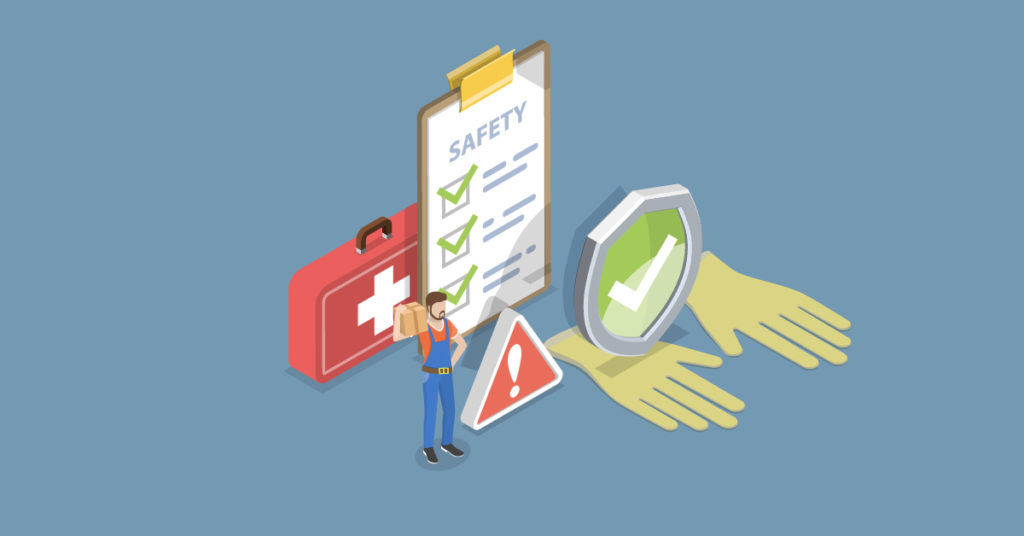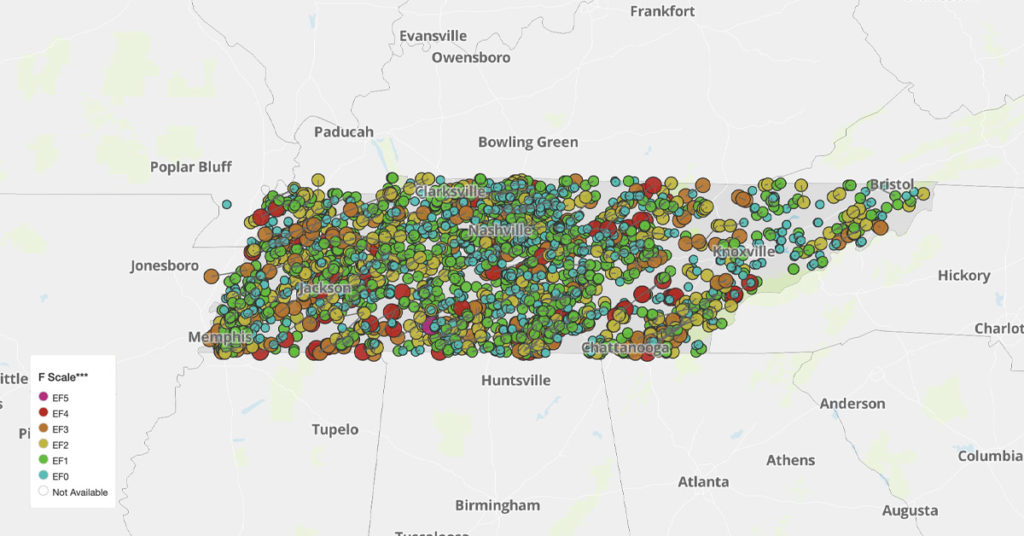Tennessee is no stranger to severe weather, and one of the most dangerous weather phenomena in the state is the tornado. With its location in Dixie Alley, a region known for its high frequency of strong tornadoes, Tennessee has seen its fair share of twisters over the years. From deadly storms to the latest tornado safety measures, here are some important facts about tornadoes in Tennessee that you should know.
- In Dixie Alley storms are typically smaller, but they can be more dangerous, since the area is more densely populated. In Dixie Alley, tornadoes can not be spotted across miles as they can in the Great Plains.
- Tennessee is ranked seventh in the United States for the total number of tornadoes that have occurred since 1950.
- The deadliest tornado in Tennessee's history occurred on April 27, 2011, killing 32 people in the state and causing widespread damage.
- The tornado season in Tennessee typically runs from March to May, but tornadoes can occur at any time of year.
- The city of Nashville has been hit by several major tornadoes in its history, including an EF3 tornado in 1998 and an EF4 tornado in 2020.
- In Tennessee, the highest number of tornadoes occur in the western part of the state, particularly in the area around Memphis.
- If a tornado warning is issued in Tennessee, it is important to seek shelter immediately in a safe room or basement. If no such location is available, the safest option is to seek shelter in a small interior room or closet on the lowest floor of a building.
- Since 1950, Tennessee has experienced 18 tornadoes rated EF5 or EF4, which are the strongest categories on the scale. The EF Scale, or Enhanced Fujita Scale, is used to measure the intensity of tornadoes, with EF0 being the weakest and EF5 being the strongest.
- According to the National Oceanic and Atmospheric Administration (NOAA), the majority of tornadoes in Tennessee are rated EF0 or EF1. In fact, over 75% of the tornadoes that have occurred in Tennessee since 1950 have been rated EF0 or EF1. However, it is important to note that even these weaker tornadoes can still cause significant damage and pose a threat to life and property, especially in densely populated areas.
Documented Tennessee tornadoes since 1950

Know when severe weather is about to strike and when it's time for you to take shelter with our StormWarn texting program.

Preparing for Tornadoes in Tennessee
Given the potential for damage caused by storms, in Tennessee (and all of Dixie Alley) it is essential that residents of Tennessee take tornado preparation seriously.
One of the most critical steps in tornado preparation is having a tornado preparation plan in place for how to respond in the event of a tornado. This includes knowing where to go to seek shelter, and having emergency supplies on hand, such as food, water, and first aid supplies. It is also important to have a means of receiving tornado warnings, such as a weather radio or smartphone app, and to stay tuned to local weather reports during times of severe weather.
In terms of where to seek shelter, it’s best to go to the lowest level of a building, in an interior room, without windows. Since basements aren’t common in Tennessee, many homeowners choose to add residential storm shelters to their homes. An above ground shelter that can withstand tornadoes up to EF5 strength can be anchored and installed on a slab outside or even inside the home or garage.
In addition to individual preparation, community tornado preparation is also important. This includes having emergency response plans in place, such as evacuation routes and designated emergency shelters, and conducting drills to ensure that residents know what to do in the event of a tornado. Local authorities can also work to improve infrastructure and building codes to make homes and buildings more resilient to tornadoes, such as reinforcing roofs and installing storm shutters.
It’s important to take steps to prepare for tornadoes, to minimize the risk of injury and damage caused by these storms, and ensure a more rapid and effective response in the event of an emergency. Tornadoes are a natural hazard, but with proper preparation and planning, we can work to reduce their impact and keep ourselves and our communities safe.

Tornado Shelters Near Me in Tennessee
Finding public tornado shelters in Tennessee can be challenging, as there is no centralized database or list of all public tornado shelters in the state. However, here are some resources you can use to help locate public tornado shelters in Tennessee:
- Contact the Tennessee Emergency Management Agency to ask about public tornado shelters in your area. They may have information about shelters located in community centers, schools, or other public buildings.
- The Tennessee chapter of the American Red Cross may have information on public tornado shelters in Tennessee. Contact your local chapter or visit their website for more information.
- The Federal Emergency Management Agency (FEMA) maintains a list of safe rooms and shelters across the country, including those in Tennessee. Visit the FEMA website to search for shelters in your area.
It's important to note that not all public buildings are designated as tornado shelters, so it's essential to check with local officials to confirm the location and availability of a public tornado shelter. Additionally, it's important to have a plan in place for seeking shelter during severe weather events, regardless of whether or not you have access to a public tornado shelter. The best solution may be to install your own residential tornado shelter.
Tennessee Tornado Safety Tips
- Monitor weather reports and stay tuned to local news and radio for updates on severe weather conditions, especially during tornado season (March through May).
- Develop a tornado safety plan for your family or workplace, including a designated safe room or shelter and a communication plan. Practice your plan regularly.
- If a tornado warning is issued or you observe a tornado, seek shelter immediately. The best place is in a designated tornado shelter. If you don't have access to a designated tornado shelter, find the safest place in your home, like a basement, or the lowest level of a sturdy building. (Away from windows.) If you are in a vehicle, do not try to outrun the tornado. Instead, seek shelter in a sturdy building or lie flat in a ditch or low-lying area away from trees and cars.
- If you're outside of a designated tornado shelter, it's a good idea to cover your head and neck with your arms and a blanket or jacket to protect against flying debris. (Some sites even suggest a motorcycle or bike helmet.) Wear sturdy shoes to protect your feet from broken glass and other hazards.
- Stay away from windows, doors, and outside walls, and put as many walls as possible between you and the outside.
- After the tornado has passed, be cautious of downed power lines and other hazards. Do not enter damaged buildings until they have been inspected by authorities.
- Even after a tornado has passed, be alert for signs of additional tornadoes or severe weather, as they can often occur in clusters. Know when it's safe to come out of your shelter.
- In the event of a large-scale tornado or severe weather event, be familiar with evacuation routes and follow instructions from emergency personnel.
By following these tornado safety tips, you can help protect yourself and your loved ones from the dangers of tornadoes in Tennessee. It's essential to have a plan in place, stay informed, and be prepared to take action quickly in the event of a tornado warning or observation.



